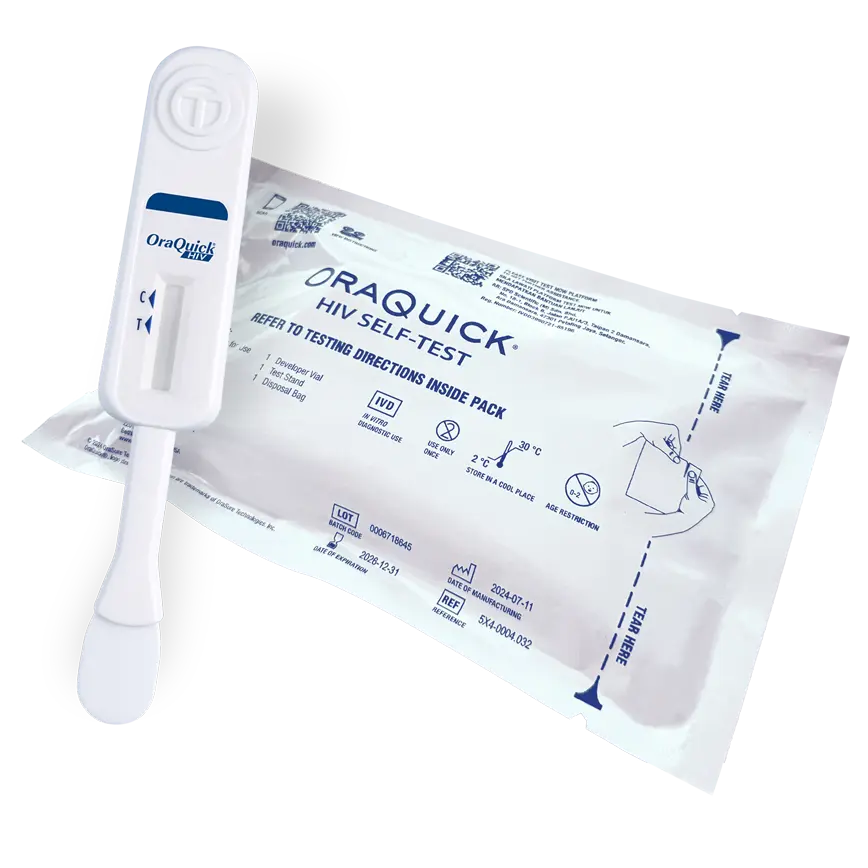Do you have HIV ?
All About HIV Facts
There are some information you can find here
Do You Have HIV?
Human immunodeficiency virus (HIV) infection has become an epidemic in most countries, including Malaysia. Initially, HIV infection was identified mainly among people who inject drugs (PWID). However, the demographics of infection have changed from mostly PWID to the general public who engage in unprotected sex.
According to the 2019 National Progress Report – Malaysia [1], by the end of 2018, a total of 3,293 new HIV cases were reported, with a notification rate of 10 per 100,000 (Figure 1). In Malaysia, there are 75,040 people living with HIV (PLHIV). About 90% of PLHIV are infected with HIV through sexual transmission! Of these, 14% (12,185) did not know their HIV status.
Potential Exposure to HIV
Looking at the above scenario, how can we be sure that we are HIV free? Or have you EVER had a moment when you were nervous and hesitant about a potentially risky/accidental exposure? How do you know if you are infected with HIV? What to do next if you test positive for HIV?
We are here to help you in your doubts! The FAQ below will provide you with a one-stop solution to all your questions:
1. What is HIV and AIDS
2. How is HIV transmitted from one person to another?
What you do , not who you are, increases your chances of contracting HIV. Most HIV is spread through unprotected sexual activity, sharing needles, syringes, or other drug injection devices. In Malaysia, HIV is mainly transmitted through sexual contact (90%), followed by people who use drugs through injection [1].
Here are some of the ways in which HIV is transmitted:
| Route | Risk |
|---|---|
| Anal intercourse | Both partners are at risk. Receptive partners have a higher risk than insertive partners because the rectal lining is thin and therefore, it may allow HIV to enter the body during anal intercourse. |
| Vaginal intercourse | Most women get HIV infection from vaginal sex. HIV can enter the body through the mucous membranes that line the vagina and cervix. |
| Oral communication | There is little or no risk, but the risk will increase if there are mouth ulcers, bleeding gums or genital pain. |
| Deep and open mouth kissing | It is very rare, but transmission can occur if a partner has a sore mouth or bleeding gums. HIV is not transmitted through saliva. |
| Sharing needles, syringes and other drug injection devices | HIGH RISK!! Sharing needles or other drug injection devices may contain HIV-infected blood, and HIV can be spread through this blood to each other. |
| Mother to child transmission | Common transmission of HIV infection in children. HIV can be transmitted to the baby during pregnancy, birth, and breastfeeding. |
| Occupational transmission of HIV | Work-time injuries caused by contaminated needles or sharp objects. |
| Chewed food | Transmission from HIV-infected caregivers to infants when caregivers feed chewed food to infants. |
What are the symptoms of HIV?
You cannot diagnose HIV infection based on the symptoms you are experiencing.
Some people experience flu-like symptoms and some may not feel sick. People who develop symptoms within 2 to 4 weeks of exposure, these symptoms may last for days or weeks. Possible symptoms include: Fever, Shivering, Stupid, Night sweats, Muscleache, Sore throat, Fatigue, Swollen lymph nodes, Mouth ulcers
How do I know if I have HIV?
Where can I get an HIV test in Malaysia?
Can I do an HIV self-test?
- Dr Tan & Partners Clinic: Anonymous HIV Test & OraQuick HIV Self Test [5,6]
How often should a person be tested for HIV and why?
What should I do if I am HIV positive?
- Department of Infectious Diseases at the government hospital
- Malaysian AIDS Council (https://www.mac.org.my)
- Kuala Lumpur AIDS support service (https://klass.org.my)
- Ministry of Health’s MyHealth (http://www.myhealth.gov.my/en/anonymous-hiv-testing/ )
Is there a cure for HIV?
About HIV treatment
HIV positive patients are treated with two groups of drugs. A group of drugs are used to slow or reduce the spread of the virus in the body. This is called antiretroviral treatment (ART).
Another group of drugs is used to fight diseases caused by a weakened immune system. These are called drugs to cure or prevent opportunistic infections.
HIV-positive patients who start HIV treatment on time will most likely not need to use the second group of drugs because HIV is prevented before the immune system is damaged. Therefore, other opportunistic infections may be avoided [4].

